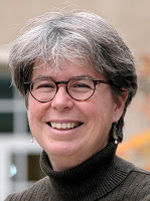For just as from the heavens the rain and snow come down
and do not return there till they have watered the earth,
making it fertile and fruitful, giving seed to the one who sows
and bread to the one who eats, so shall my word be
that goes forth from my mouth; my word shall not return to me void, but shall do my will, achieving the end for which I sent it. Is 55:10-11
When I hear this reading from Isaiah at the Easter Vigil, I tend to focus on the shower of blessings with which it begins. Come, all who thirst, all who hunger, come, eat and drink without cost. Such abundance stands in stark contrast to the Lenten disciplines of fasting and self-denial, drawing my attention in those last moments before Easter dawns to the rich fare to come, the Eucharist about to be celebrated in a church ringing with alleluias and ablaze with light.
But here, in the depths of Lent, I find myself contemplating not the glowing promises, but the final two verses, with their everyday images of rain and snow, seeds and bread.
I am struck by the sense of expectation. Gifts are there in abundance to be sure, but they are beginnings, not ends.
[hotblock]
God sends forth his Word, expecting that he will not just pass through the world, but engage with us, saturating us, making us a new creation. In his commentary on Isaiah, St. Jerome, a fourth century doctor of the Church, called the Gospels “rainstorms.” The Word that cascades down upon us, week after week, day after day, working in us.
There is power in these words, too, and reassurance. Our work in the world does not depend on our resources alone. God has spoken, and if we let the word enter our hearts, it cannot help but bear fruit, returning to God having achieved the end he desires.
I looked out at the deep blanket of snow covering my back yard last weekend. I thought about all the nitrogen trapped in the snow, given to feed the grass and fruit trees as it melts. What the plants took last year from the earth is returned to the ground, that it might burst forth again in spring blossoms and summer fruit.
I sit now under Lent’s blanket of snow, listening to the familiar Gospels, letting the rainstorms soak the seeds planted in my heart, reading them to burst forth, doing the work God intended for me.
***
To read: Isaiah 55:1-11
To pray:
Almighty ever-living God,
sole hope of the world,
who by the preaching of your prophets
unveiled the mysteries of this present age,
graciously increase the longing of your people,
for only at the prompting of your grace
do the faithful progress in any kind of virtue.
Through Christ our Lord. Amen.
To listen: Paul Melley’s “You Will Know”
***
During Lent Michelle Francl-Donnay examines each of the readings to be proclaimed at the Easter Vigil Mass — see her columns in our Lent 2015 section. She is a member of Our Lady of Good Counsel Parish, Bryn Mawr.
PREVIOUS: Praying Lent: Tuesday of the Fourth Week of Lent
NEXT: Doors of ‘the house of Jesus’ are open, so come in, pope says




Michel, it is so good to read your inspirational articles again. The images you present are very inspiring.
Lucy
Thank you, Lucy!